All images courtesy of Mark Knight
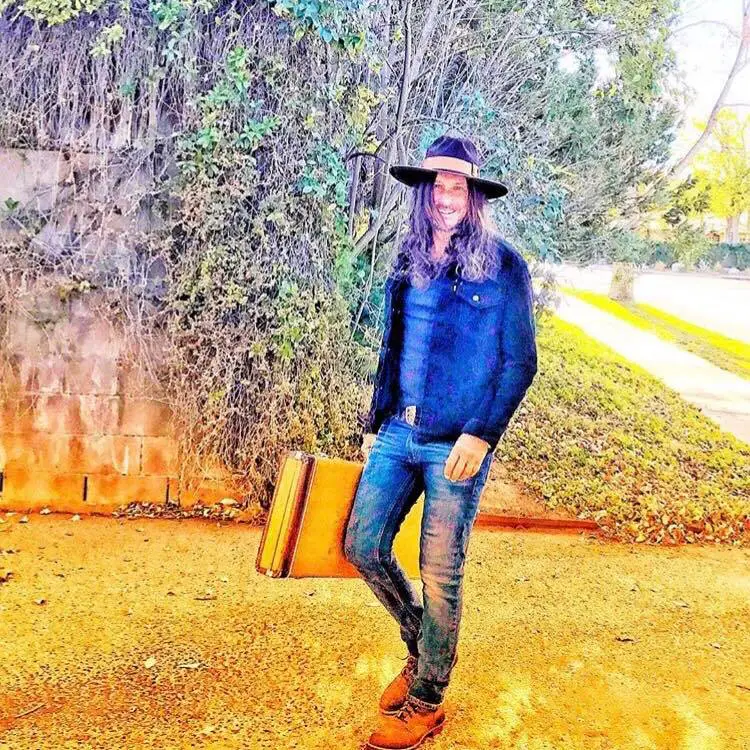
In the thirty-two years since his band Bang Tango burst onto a crowded Los Angeles music scene, Mark Knight has never been busier.
Knight, primarily renowned for his multifaceted guitar playing in the Bang Tango days, has spent nearly three decades honing his craft as a singer, songwriter, and producer as well, demonstrating his innate versatility through nine studio albums and a variety of projects including Worry Beads, Gravy, and most recently, Mark Knight and the Unsung Heroes.
With Knight serving as the driving force, the Unsung Heroes have produced three albums since its inception: Road Sick Eyes (2013), Don’t Kill the Cat (2018), and most recently, Days of a Dreamer.
Released in February 2021 on Knifewound Records, Days of a Dreamer features thirteen songs, all written by Knight. Knight (vocals, guitar), Eddie Montes (bass), and Tigg Ketler (drums) comprise The Unsung Heroes.
I recently sat down with Knight to discuss his remarkable evolution as a musician, his latest effort, Days of a Dreamer, growing up in Los Angeles, and much more.
Andrew:
Before we dive in and talk about Mark Knight and the Unsung Heroes, I wanted to go back to the beginning. What was the music scene like growing up in Hollywood?
Mark:
I was born in North Hollywood, but I grew up in Calabasas. I came up during the whole 80s Rock scene going on in Hollywood and LA, So, I was really part of that from the beginning. That was the scene going on. I lived probably thirty minutes from Hollywood, but me and my buddies would always rally into Hollywood and check all the bands — and eventually be one of the bands. So, that’s kind of the scene I came out of.
Andrew:
What influenced your affinity for guitar?
Mark:
I had taken an elective class in junior high school because I had to pick up an elective class. A couple of my buddies were playing guitar — I loved music — and I took this class and just gravitated to it. It was kind of a natural progression. I just really took to it and fell in love with it. It was just like, “This is what I’m supposed to do.” I picked it up really quick and it just came to me. That’s where it started.
Andrew:
Who do you consider to be your most prominent musical influences growing up?
Mark:
I was a Rock ‘N’ Roll kid; I came up around all the classic bands. I would say one of my major influences from the very beginning was Jimmy Page, Michael Schenker from UFO, then Eddie Van Halen and Randy Rhoades, and so on and so on. But those were the beginning guys.
Andrew:
You were in a band called Mickey Knight during a crucial time for the Los Angeles club scene. Talk about what that was like.
Mark:
So, my very first band was this band called Krude Witch. I was sixteen or seventeen, and we played The Troubadour and all the major clubs in Hollywood. We opened up for W.A.S.P. and Ratt; all the bands. Then that band disbanded, and I put this band together, Mickey Knight. It was right around ’84-’85 I would say, and the scene was pulsing, all the hair bands — if you wanna call them hair bands, I hate that title — that scene was all happening. So, Poison, Ratt, all those bands were selling out and the whole scene was starting — and really the Sunset Strip scene was starting to happen. So, we were right in there with that. We were doing a lot of opening acts to sold-out clubs and stuff, but never really hitting as the big headliner. But, did a lot of great shows. So, that’s what happened as far as Mickey Knight. That’s where I got my start in the music business, I guess. Mickey Knight never got a record deal, but I went on to do this band City Slick, and then eventually Bang Tango.
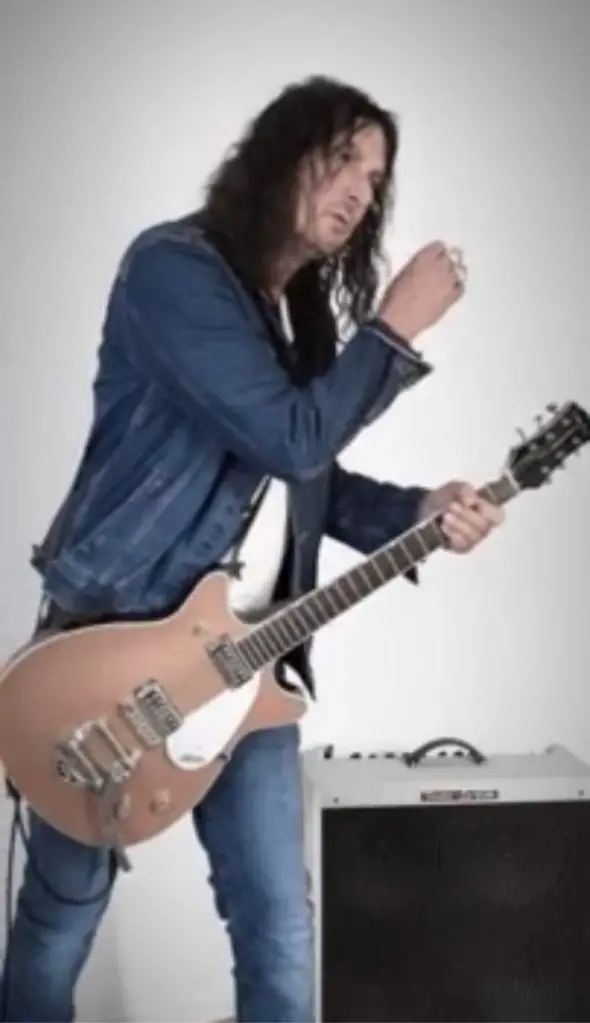
Andrew:
You have a unique perspective on that whole period because you were essentially there from start to finish. You lived it. So, for those not old enough to have experienced it, describe what was it like coming up through the 1980s in LA.
Mark:|
It was exciting. It was just unbelievable. When you live here, I grew up here, so I just thought it was going on in every city. But it wasn’t; it was going on in Hollywood and the Sunset Strip. It was absolutely crazy, you have no idea the madness that was happening. I describe it like this: It’s like the Rose Parade the night before New Year’s Eve in Pasadena every year. That amount of people in the streets every Friday and Saturday night — with bands, and girls, and guys, and people passing out flyers. It was an absolute parade of people every weekend, and bands in every bar were playing. Then during the week, there were thriving clubs, too, that people would hang out at. It wasn’t quite the scene, because the weekend, people would come out from different areas to Hollywood.
Mark:
Your songwriting has always piqued my interest due to depth and relatability. It’s obviously an innate skill, but where does the inspiration come from? What’s your approach?
Mark:
Yeah, you know, I’ve always been interested in writing songs in every band I was in, but I wasn’t the lyricist or a vocalist in my earlier bands, so I concentrated on basic in-chord progressions, and good riffs that were hooky and a singer in the band could write to. But eventually, I became a singer/songwriter in 1995 — the breakup of Bang Tango’s original lineup — and I started just started dabbling writing songs on acoustic, and writing lyrics and melodies and not only just the music. That just evolved, and I had found a little niche of expressing myself vocally and lyrically, and songwriting, without just playing music only. That became a real lift to me and increased my interest in music even more. I continued to create, and develop that and become a songwriter.
Andrew:
What was your evolution as an artist like post-Bang Tango, around ’95 or ’96? Did you ever feel like you were finally able to fully tap into your natural prowess?
Mark:
You know, I didn’t want to be a singer, frontman, or any of that. I actually had people sing my songs, and stuff from the beginning when I started writing my own lyrics. But everybody I’d bring into the picture would say, “You should sing your own stuff. You sound better singing it than me. You have more of a feel for it.” Not like I was a great singer; it took me years to develop that. So, I just naturally got interested in a lot of singer/songwriter guys. At that time, the whole Grunge Rock was happening, and you’d see these guys like Kurt Cobain doing the Unplugged thing, and I saw myself being able to do something like that. I kind of gravitated to that as being able to go out and sit down on a stool and play some songs on acoustic and win people over. So, that was kind of my motive, and I just developed that. Then I started tapping into different songwriters that were sort of cool, like [Bob] Dylan and the old Classic Rock guys, and guys like Pete Droge, and these younger guys that were making themselves known. I just tapped into that, and I thought, “Hey, I could be one of those guys,” and I liked that whole trip; it wasn’t showboaty; It was just more about lyrics, melody, and music and I really got into that. I felt I could fit into that mold.
Andrew:
Earlier, you alluded to becoming a lead singer and what that responsibility entailed. So, what did the path to becoming a frontman look like? I imagine it was quite an adjustment initially.
Mark:
Yeah, like I said, I wasn’t out to be a frontman. The more I wrote songs and sang songs and played out live singing my own songs, I just enjoyed it. I enjoyed writing melodies, vocals, and lyrics, and I had to figure out a way to take that to the stage and be a frontman fronting a band. So, initially, I just did acoustic shows that way, then I decided I wanted to electrify the band, and I brought Tigg Ketler in from Bang Tango, and I just had to cut my teeth on doing that. It was nerve-wracking in the beginning, but eventually, I got used to it. I kind of had a little schtick going with my showmanship and it just worked.
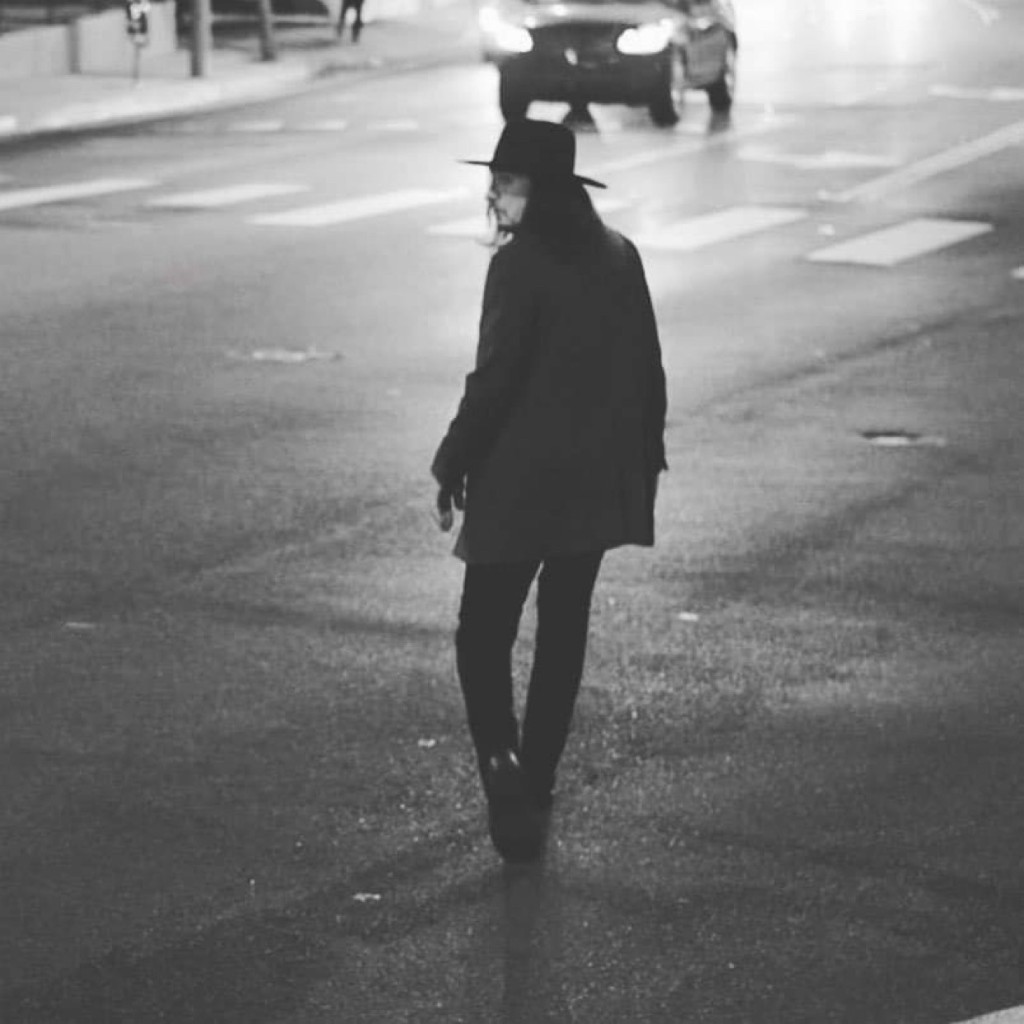
Andrew:
I promise we’ll talk Unsung Heroes in a moment, but first, I have to ask about the band Gravy. I’m a big fan of the 2004 album, Bones, so, what went into creating the album?
Mark:
So, Bones…that record was a unique thing. I had done Worry Beads for a while — I think I put out an EP called Broken Down — and the band was just kind of stagnant, so I got together with a buddy of mine, Mark Tremalgia, who actually played in Bang Tango for a minute at the very end. We just decided to do this jam band, kind of funky band, and I came up with a bunch of songs, brought ‘em to these guys, and we went in and worked up this band, Gravy. It was supposed to be more of an Allman Brothers jam band thing, and it ended up we brought in this guy Rocc Tomas, this bass player, and he was just this funky, funky bass player/producer. He decided that we should go in, and record this batch of songs, and we ended up coming up with the record, Bones. That’s how that came together.
Andrew:
Tell us about the origins of Mark Knight and The Unsung Heroes.
Mark:
Initially it was Worry Beads, then we did this Gravy thing, then we went back to this Worry Beads incarnation of this record called Iron Spittin’ Horse. And during the time, we were doing this record, Iron Spittin’ Horse, it was taking so long, that I already had a whole ‘nother batch of songs written, and decided to do another record on the side; a solo record, just Mark Knight. I did this record called Bone Rail Tight, with Matt Abts from Government Mule — a good buddy of mine — and this guy Tony Marsico, he’s a bass player and a friend of mine. We went in and put this batch of eleven songs together called Bone Rail Tight, with a friend of ours who produced it, and recorded it for us. So, that became my initial startup to my solo career, with no title of a band. Then we went out and toured on that; we did a couple weeks in the south, came back, and I decided I wanted a band around it. So, I formed this band The Unsung Heroes, and that was Tigg Ketler from Bang Tango, Reeve Downes from Rhino Bucket on bass, Mark Tremalgia, who had been playing with me on and off for years, and myself. And that was the original lineup of Mark Knight and The Unsung Heroes. Then I had another batch of songs, because I write a lot, and ended up doing Road Sick Eyes. That was our very first record together.
Andrew:
You have that breakthrough in 2013 with Road Sick Eyes, as you just mentioned. How was the response, and how much did that mean to you?
Mark:
Yeah, it came out really geat. I was going through a really, really hard time in my life, personally. I had gone through a divorce — everybody in the band was going through breakups with their wives, and this and that — so we were all kind of down-and-out, but we put it all into the music. We recorded that record pretty much live; it was done like in a garage studio. We didn’t do a lot of overdubs; a lot of the bed tracks were all live. We just really got into it. It was a really dark time in my life, but really cool, and positive musically. It was an interesting time.
It was received pretty good. We did a song called, “Lies,” and we put a video out. Our buddy Drew had directed it and it kind of blew up a little bit; we were thousands of views. It was cool — I mean, we probably could have captivated more on the time — we kind of waited a bit too long before we actually released the record. We put that video out in January and released the record in May, which is incredibly too long of a time. So, Road Sick Eyes was pretty successful. It was a good record; I’m proud of it.
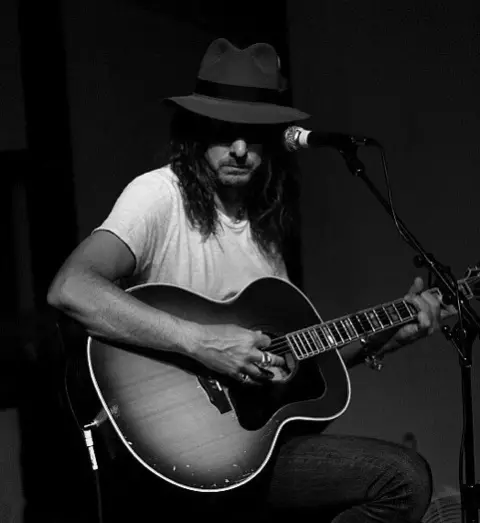
Andrew:
In February, you released Days of a Dreamer, which is a fantastic record. Talk about some of the challenges of the recording process in the middle of a pandemic.
Mark:
Well, let’s see, I’ll bring it up to speed. I put out another record called Mark Knight, which is an acoustic kind of record. Then I did a record with the Unsung Heroes again called Don’t Kill The Cat; that was in 2018. Then I did the latest one, Days of a Dreamer. The pandemic thing actually worked to my advantage, because it gave me time to concentrate completely on making this latest record. I had all this time, so I recorded all the guitars and vocals at my house, in my own home studio here. So, I could really hone in on a lot of guitar parts, a lot of instrumentation, and really think these songs through. It worked to my advantage.
Andrew:
What was the creative process like on that one?
Mark:
It was pretty much the same thing. I basically demoed all the songs first. What I do is, demo all my songs before I go in and record for real. But actually, a lot of the stuff I demoed was pretty good, so we used a lot of the demo stuff. We pulled some of the acoustic tracks off — some of the vocals, even — that I did at my house. So, basically, I wrote all the songs, recorded them on pro tools at my house, and demoed them. Then, we started from scratch and went in and did the drums, built the drums tracks, then we brought in different players. I ended up back at my house doing all the electric guitar, acoustics, and lead vocals.
Andrew:
You’ve also added producing to your resume in the post-Bang Tango years. What influenced your passion?
Mark:
Well, producing is just kind of like, overseeing your music the way you hear it. It’s not like I wanna wear the producer hat or anything, but I just know the way I wanna hear things. I have a certain idea of tonalities, melodies, mixes. I just hear certain things in my head. So, that becomes a producer gig. That’s how I took to that. I haven’t had a guy I could just turn everything over to and say, “You can just run with it.” I mean maybe if I had a Rick Rubin or some big guy like that, maybe it’d be different to where I’d let it all go. They’re usually guys who are engineers, partial producers as well, but it’s pretty much my vision, more or less.
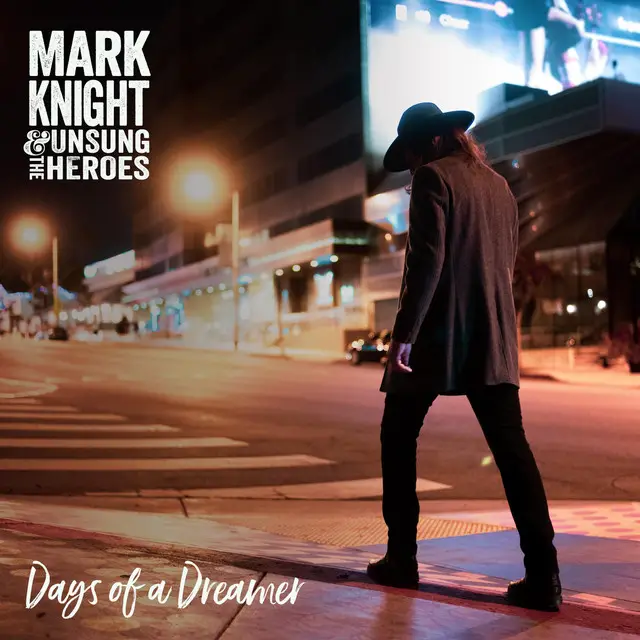
Andrew:
Have you been able to do much touring in support of that album?
Mark:
No, I haven’t done any touring to support Days of a Dreamer. We’ve just been, at the moment, doing local acoustic shows. The pandemic and everything has been rough for that. I’d love to get out and do some shows outside of town, but I’m rebuilding the band now, learning the record, and doing some different stuff. I had to rebuild the band, basically. I didn’t fire, but some people went; some people I did end up firing. So, at the moment, I’m rebuilding the band so I can go out, and play some shows eventually, next year.
I brought Tigg Ketler back in, and a good buddy of mine, Eddie Montes on bass, and me. We’re just a three-piece right now. We’re making it fly; it’s sounding really good and we’re having fun. No additional guitar players at the moment. I might bring one in, but right now, it’s a three-piece.
Andrew:
You’ve accomplished so much in your musical career, Mark, so what keeps your fire burning after all these years?
Mark:
Just my love of music, I think. I think I’m always looking for the rush of writing a new song or being creative; it just makes you feel good. Also, the interest from people to support me, and what I can do to make them feel good, musically, has been a drive. I have a small cult following, and people are waiting for the record, waiting for the next song. Those types of things keep you going. So, it’s just not like, “Yeah, I’m just doing this to spin my wheels for myself.” A lot of artists say that — I just do it for myself — but I actually do it for other people. You want the reflection of making people feel happy, sad, or whatever. That drives me to continue to create. So, it’s a lot of things.
Andrew:
Okay, one Bang Tango question. The solo work on, “Someone Like You,” is excellent and highlights your versatility. Is there anything you can recall from recording that ending solo?
Mark:
Yeah, that song was definitely all around a guitar thing, from the intro I wrote, to the harmony solo in the middle, to the very end. We were recording in Austin, Texas. We roll tape — I think Joe Leste was sitting in the room at the console and I was sitting there — and we just said, “Rip it out, man. Just go to town.” So, I did one or two, and Joe looked up to me and said, “Damn, that is it, man!” My frame of mind was, that song was kind of — to me back then, I was thinking kind of Billy Idol-ish — kind of like Steve Stevens guitar kinda work. But I really wanted to get down, dig in, and do some kind of edgy, almost George Lynch style there. So, I just went hard on it and it felt really good. There’s some out-of-key notes on that if you know music, but it didn’t matter because it had that attitude. Somebody transcribed it on YouTube once, and I was like, “I gotta see how somebody is gonna transcribe it.” This guy had posted a video, and he tore that solo apart note-for-note, and I was like, “I did what?” It’s such a flourish of notes; some of the notes are so fast and mashed together, you can’t really hear the notes, but this guy picked it apart perfectly. I was like, “Whoa, that was pretty cool.”
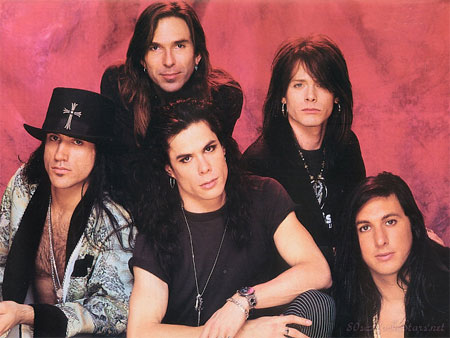
Andrew:
Now, was that off the cuff or premeditated?
Mark:
No, that was just freestyle. I didn’t write any of that, I just basically went for it. Like just shred it out. They rolled tape — I think I did, maybe two or three of those — and there were no comps even, on that. I think it was all just one take; probably the second or third one. Just had a good tone, and I was pretty warmed up. We had done the whole record, I think, and that was like one of the last tracks we did.
Andrew:
Before we close things out, what’s next on the docket, Mark?
Mark:
So, basically, at the moment, we’re in rehearsals — the three of us getting this three-piece together, which I’ve never done before. It’s a blast because nobody can play any bad guitar parts because it’s just me playing — so I’d have to blame myself. [Laughs]. But I’m enjoying it, it’s a different approach. It’s a challenge. I never had this challenge because I’ve always had another guitar player. I decided to take it on because the last guitar player didn’t work out. There’s a couple of guys I was considering but I’m like, “You know what? Fuck it. I’m just gonna do it myself.” So, we’re in rehearsals, we’re getting it together, we’re looking at next year getting out playing. No tours or anything, but hopefully some local gigs if things lighten up a little bit with the pandemic and all the COVID protocols. So, that’s the plan.
In the meantime, I’ve written pretty much a new record. I’m considering demoing that, but I just don’t wanna get into the whole entire studio, recording mode right now. I’m holding off because we haven’t done it yet for Days of a Dreamer, and I wanna really get out and play with these guys, and focus on that. But always writing; that’s where it’s at right now.
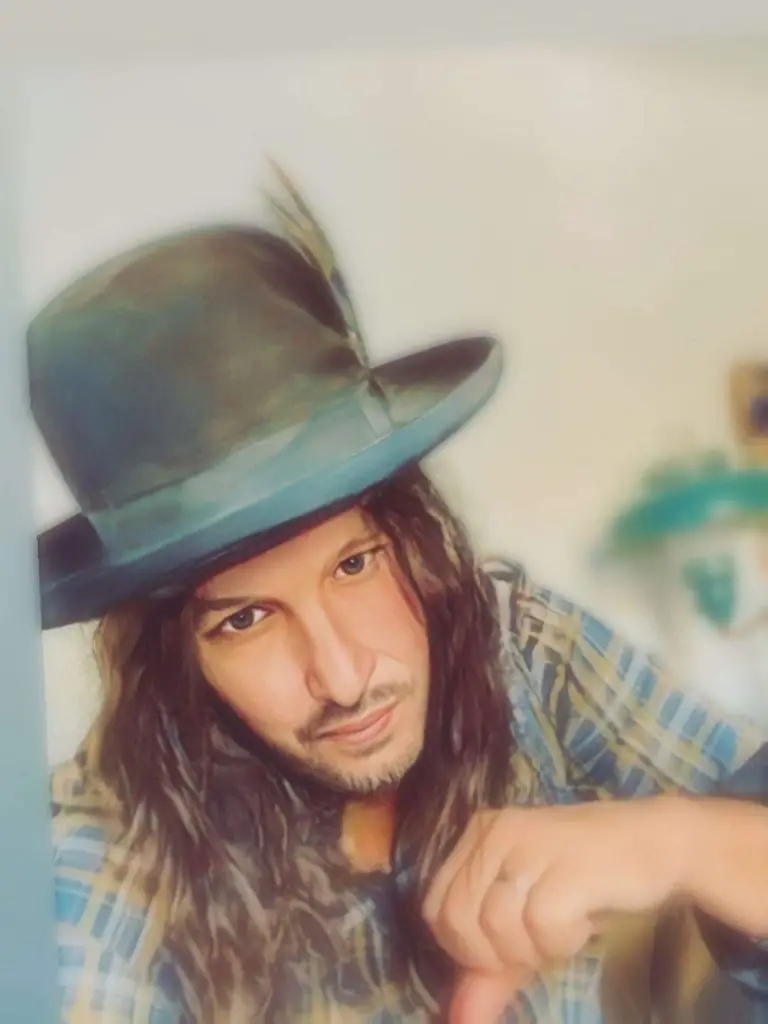
Interested in learning more about the work of Mark Knight? Check out the links below:
Dig this article? Check out the full archives of Shredful Compositions, by Andrew DiCecco, here: https://vinylwritermusic.wordpress.com/shredful-compositions-archives/
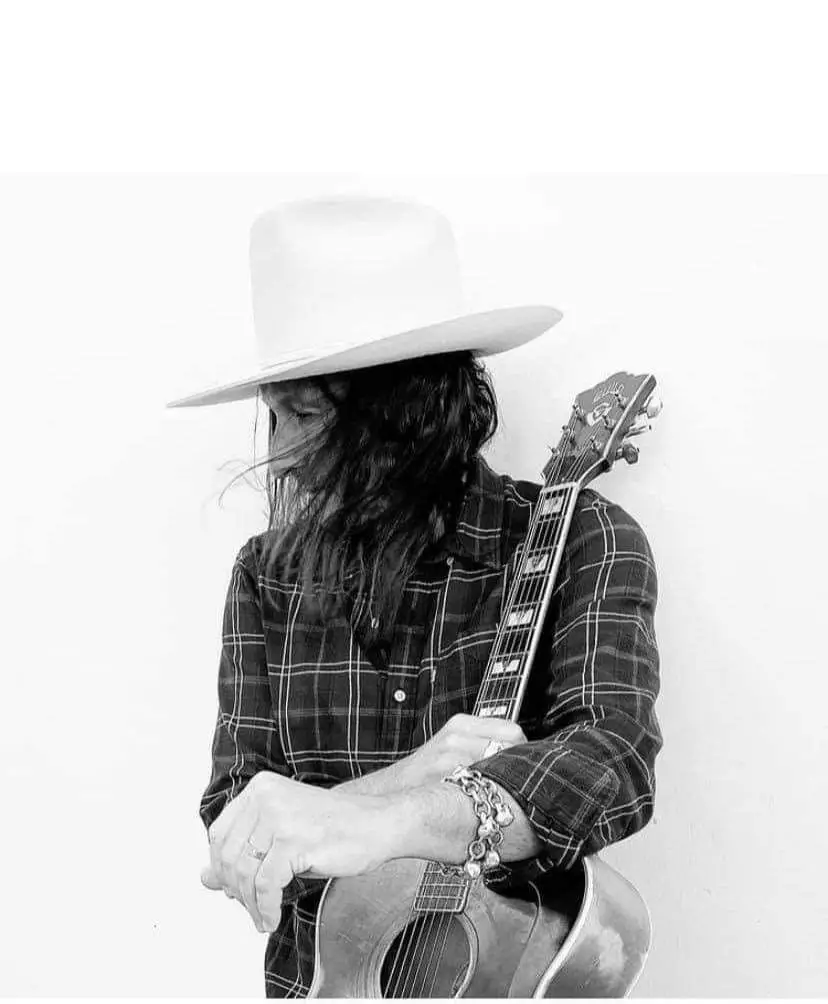




Leave a Reply